Heavy Rain Review - Potential Squandered by Sloppy Story
 Mon, July 19, 2010 at 3:57 PM
Mon, July 19, 2010 at 3:57 PM Heavy Rain, as it turns out, is a difficult game to pin down. As I sit here trying to summarize my feelings, I find it hard to form the usual nice, tidy narrative explaining why the game was either spectacular or a load of crap.
At the center of the turmoil is one concrete statement that I feel certain of. Heavy Rain is a thrilling, unique title that tries to bring something new to the table and almost manages to succeed, but that ultimately has too many problems to recommend without reservations.
Its strengths will be enough to make a certain type of gamer fall madly in love with it, and rightfully so. It makes a valiant attempt to push gaming forward by introducing stronger characters and narrative influence into the typically juvenile gaming landscape.
Unfortunately, having a noble concept is not enough to qualify you as a success. Execution is key, and here Heavy Rain stumbles. Most will find a litany of problems that mar what could otherwise have been a terrific experience.
Heavy Rain sees you playing as four different characters with interweaving tales. Each of these characters is unique, but they all share the common goal of catching the Origami Killer. This madman has a penchant for kidnapping ten-year-old children and drowning them slowly over multiple days as rain water slowly fills the drain he’s trapped them in. He then sends the father through a nightmarish obstacle course of challenges designed to test how far he’s willing to go to save his loved one.
Ethan Mars is the father of the latest unfortunate victim of the Origami Killer. The game opens with a long scene of Ethan living his normal, happy life with his family. This slow start firmly establishes who the character is and what he has to lose, which is helpful because the game then proceeds to ruthlessly take it all away. He loses one of his two sons in a car accident. This leads to divorce from his wife. Years later, depressed and having occasional blackouts from the mental trauma, his other son is taken by the Origami Killer during one of his episodes. This loving father must then decide how far he is willing to go and how much he is willing to sacrifice to save his son.
Norman Jayden is an FBI agent desperately searching for the killer while trying to hide his drug addiction from those around him. Scott Shelby is an asthmatic private detective with a troubled past who claims he’s been hired by the victims to assist in the search for the elusive killer. Finally, the playable cast is rounded out by Madison Paige, an insomniac photographer that’s out for a good story until she gets a little too involved with Ethan.
Through a series of contextual button presses and quicktime events, you guide these characters through the story, making decisions and affecting the course of the tale until it reaches its conclusion. The game plays sort of like the love child of a Choose Your Own Adventure book and an adventure game from the mid-90s, like Tales of Monkey Island. It combines decision making with a heavy story focus and cinematic presentation for what is ultimately a pretty unique cocktail.
In Heavy Rain’s story we find both its biggest draws and its most crippling problems. It weaves a compelling tale that’s bound to draw you in, but doesn’t weave it compellingly enough to avoid criticism. In a game focused so heavily on story, narrative problems carry a greater weight than in most titles.
Heavy Rain has an excess of small story concerns that crop up constantly. Countless questions and inconsistencies arise that probably could have been explained away with better writing.
Why does nearly every victim of the Origami Killer withhold obviously vital evidence from the police? Why is the police force so wildly incompetent? Why does nobody notice the fact that in every single case the father disappears directly after the kidnapping, usually never to be seen again? Why do none of the fathers ask for help from the police even though they’re never forbidden to do so by the killer? Why does the story spend so much time going after blatantly obvious red herrings that no one in their right mind could believe are actually connected to the case? How can one heavily injured man outrun an entire SWAT team and a helicopter that mysteriously disappears when convenient?
Those are just off the top of my head. There are other, even bigger issues I have that I won’t discuss here out of respect for those that still don’t want the story spoiled. Suffice it to say, the killer’s motivations and actions are highly questionable, his identity perhaps a little too obvious, and a lot of plot elements are left totally unexplained.
All of these problems point to one underlying truth. Heavy Rain’s story was assembled in such a way as to hide the precious twist at the end at all costs, those costs including story depth, believability, and good characterization. Put simply, the story doesn’t hold up to close scrutiny.
In a well-written twist, the story will discretely mislead you from the truth until the twist is revealed when suddenly all the previous information takes on new, deeper meaning. Heavy Rain is not this kind of twist. It forgoes the subtle, deep approach in favor of force-feeding you lies and misinformation so you can’t see the truth because it’s being deliberately hidden behind a wall of falsities. This setup has the rather unpleasant side effect of turning most of the story into a nonsensical mess once the twist is revealed because motivations, dialog, and plot events no longer mesh with the truth. All this to protect a twist that’s pretty obvious if you’re paying any sort of attention.
No wonder David Cage recommended players not go through the game multiple times. He was trying to keep players from noticing that he was a hack writer with a shallow bag of tricks.
Consequences are supposed to be the key draw of Heavy Rain, but some of that choice is more illusion than reality. The outcome of events is further out of your hands than the game would like you to believe. Important decisions were sold to us as the cornerstone of the game’s very existence, but aren’t as consistently carried through as they should be. Still, I hesitate to be too critical of this particular element when even the limited choices here are far and above what most games offer.
Outside of the story, the more Heavy Rain resembles a traditional video game the worse it gets. The controls are terrible. Camera angles are often problematic. Button prompts are vague enough that performing unwanted actions, sometimes with dramatically unintended consequences, is a frequent event, and this is when the prompts aren’t covered up by a character standing in the way or a bad camera angle hiding them from view. A couple of ridiculous challenges Ethan faces to save his son feel contrived and frustrating rather than actually testing his love for his son in any meaningful way. The writers pretty clearly watched one too many Saw movies before wrapping up this tale.
I’m not simply ragging on Heavy Rain because I think it’s terrible. Far from it. Heavy Rain is that more painful type of disappointment associated with squandered potential. Frankly, it sucks to watch something that could have been awesome turn out to be mediocre. And, despite all its problems, there are plenty of moments in Heavy Rain that prove it could have been something truly special.
The scene near the beginning of the game where Ethan loses track of his son, Jason, in a crowded mall wonderfully conveys the fear a parent must feel when their child disappears in such a chaotic, crowded space. The followup scene later on that plays on the crippling fear of crowds Ethan has understandably developed conveys his phobia perfectly in a way that utilizes the interactive nature of the medium to great effect. There’s a quiet moment where Scott has to rock a baby to sleep that’s the kind of sweet, intimate moment you don’t often see in games.
The action sequences also deserve a mention for being consistently well done. Call them glorified quicktime events if you must, but they have a cinematic flair and intensity that keeps them consistently thrilling, whereas most Simon Says-heavy combat is simply infuriating (I’m looking at you, Price of Persia).
I appreciate what Heavy Rain tried to do. Its cinematic presentation is dazzling. Its heavy focus on narrative, and on a style of storytelling not often seen in games, is a refreshing breath of fresh air. Its peeks into the normal lives of its characters gives them depth and believability. Everything the player does in the game, including the slow paced bits, is contributing to the narrative or building character in some fashion. There’s no filler or fetch quests to be found here. No segments that exist only because the level designer thought of something really cool. This game is all about its story and nothing else, and I respect that.
I just wish it had lived up to its promises.
I sincerely hope Heavy Rain was a commercial success not because I feel this particular game necessarily deserved it, but because, as the poster child for the next steps in interactive, narrative-focused gaming, success for Heavy Rain might at least mean that this emerging trend has a chance of continuing in the future so another title can come along and do the concept justice.
<Note: I didn't cover every story issue I had with the game in this review both for fear of spoilers and because others have already done it better. If you wish to read more for yourself, and have either already played the game for yourself or don't mind spoiling it, have a look at this article on Gamasutra by Emily Short called "Analysis: Heavy Rain's Storytelling Gaps" or, if you prefer a more comprehensive, casual approach, have a look at this series of four articles by Daniel Weissenberger chronicling his thoughts on the game, usually in amusing fashion, as he played through it.>



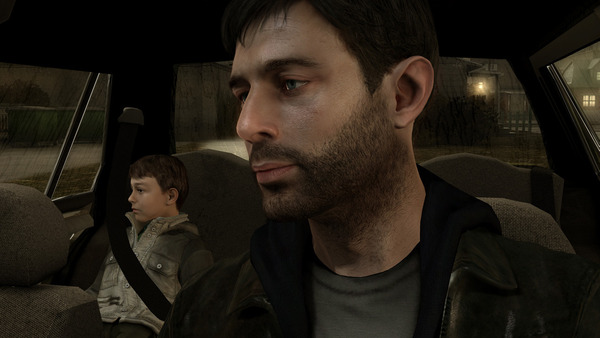
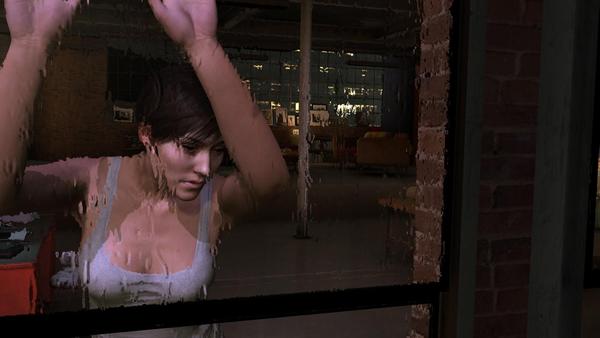
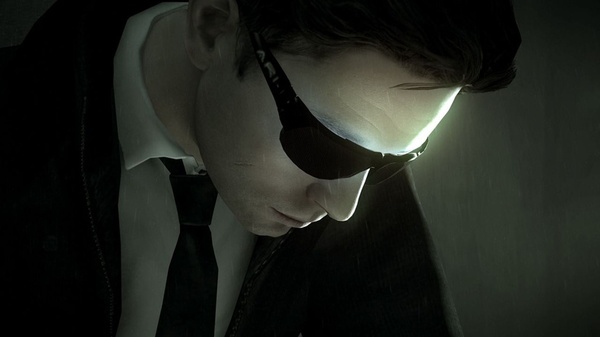
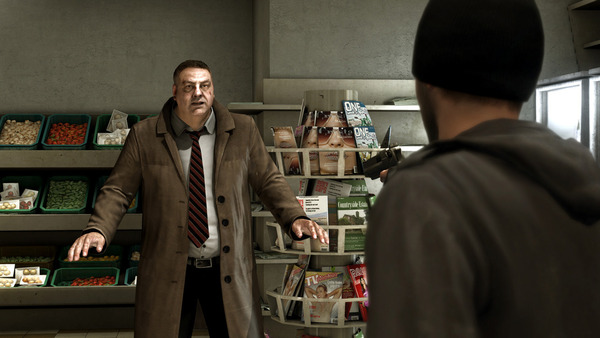
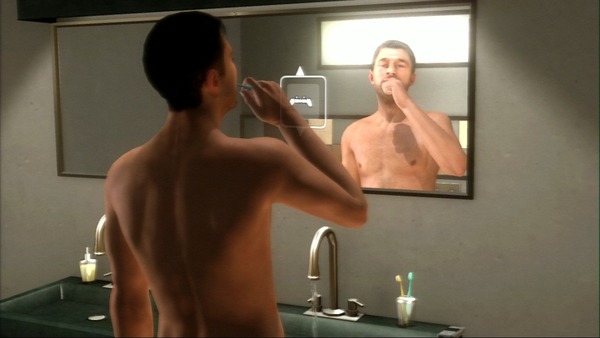
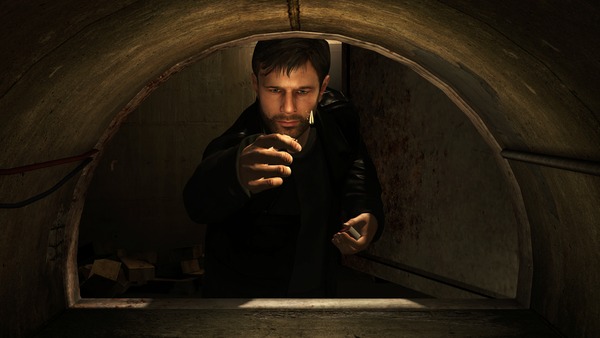
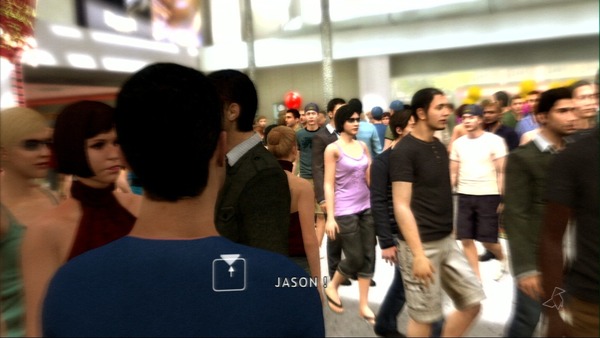
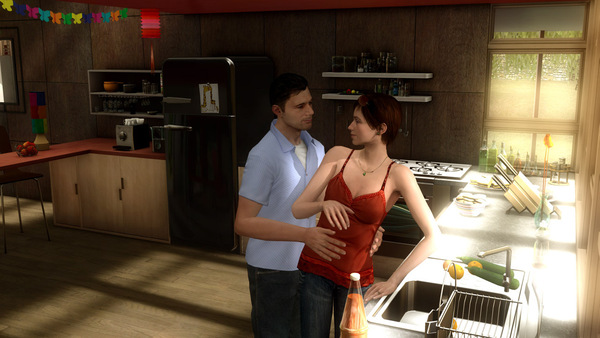
Reader Comments